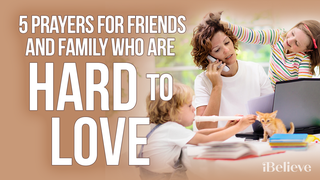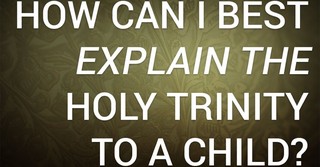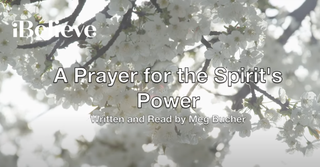Does God Condone Genocide in the Book of Joshua?
Share
The following is a transcribed Video Q&A, so the text may not read like an edited article would. Scroll to the bottom to view this video in its entirety.
The word genocide is a loaded term that I think in our culture can be a negative term, a pejorative term. Many people think that and think that the God of the Old Testament is a wrathful God who is judgmental, and that is not the type of God that I want to worship. But that presumes some things. It presumes and really impugns the character of God. That is not the starting place of all this. The starting place of all this is that man is sinful, we are full of sin, and therefore under God’s wrath. Indeed, we have already been sentenced. But God has not chosen to execute the sentence. He has not chosen to exercise that sentence, because God is also merciful and wants to give time for people to repent and turn to Him and have a relationship with Him.
How do you see that through the early chapters of Joshua? The context is that the Israelites have been wandering in the desert for 40 years and finally come to what is called the plains of Moab which is on the east side of the Jordan River. And they are ready to cross over the river and take possession of the promised land, that God has promised to them way back with Abraham, Isaac, and Jacob throughout the generations. And it is interesting because you come to the first city that they are about to face, which is Jericho, and Joshua sends out spies. And they come back and meet with Rahab, who is a prostitute in the city, but it turns out that she is a believer and has faith in God. And because of that faith she and her family where spared. Indeed, Rahab is mentioned three times in the New Testament. Once in Matthew in the genealogy of Jesus and once in Hebrews and James. In the Hebrews and James references they focus on Rahab’s faith and how she was justified by her faith, especially in Hebrews.
So, you have to think back—what does all this have to do with genocide? Rahab and her family had known about the God of Israel. They heard about the events of the Red Sea and how God had saved his people and how amazing that was. Think back, that was forty years ago that this happened. The inhabitants of this land and possibly other places had known about God and the fame of God and the grace and mercy of God, and really the gospel if you will, for forty years. So, they were actually given plenty of time to turn to God in repentance and faith. God was merciful, giving them that time to turn to him. It turns out that the only people who did in fact turn to faith in God was Rahab and her family and they were saved.
So, instead of posing the question in that way (why is God so judgmental”) it is actually “how amazing is it that God is merciful and patient and is willing to stay His execution and not exercise a judgment, but instead be merciful and give people time to repent?”
Photo Credit: Ricardo Gomez Angel/Unsplash







